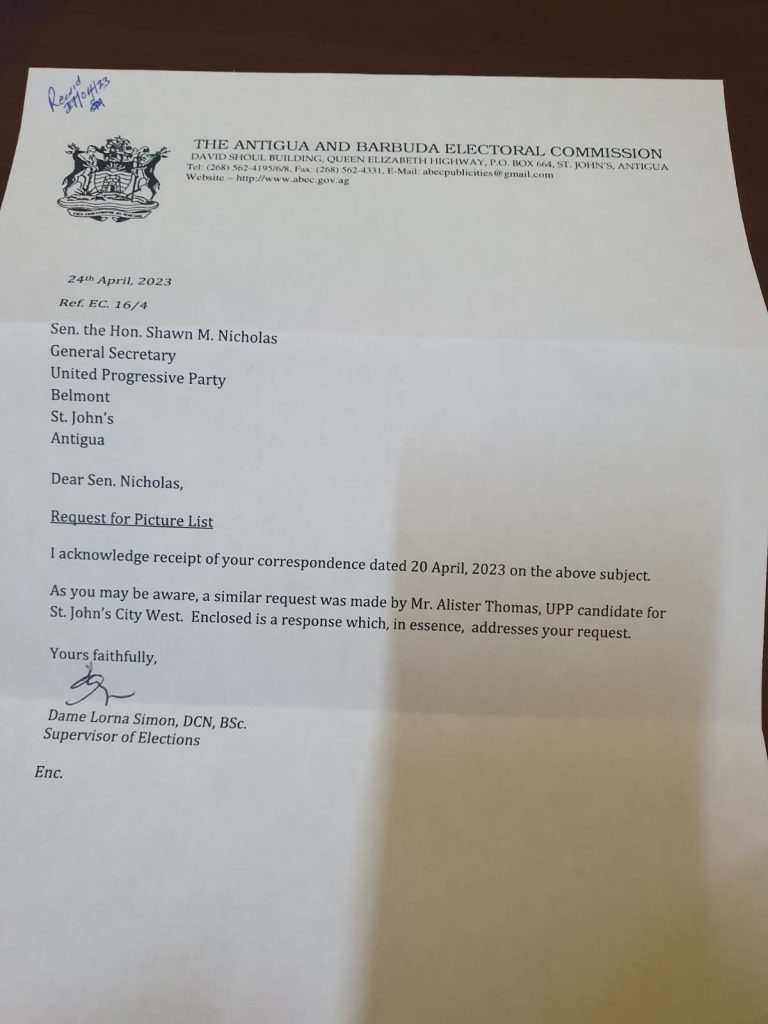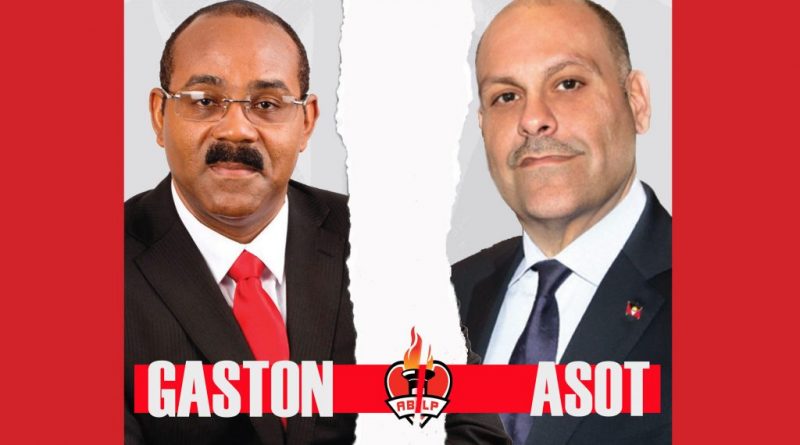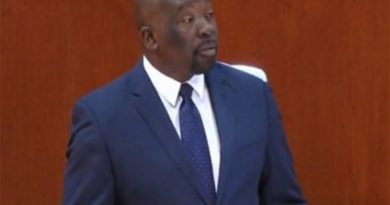ABEC delegation reportedly agrees to conduct investigation into St. Peter transfers, as demanded by PM Browne
An investigation into the transfer of voters to the St. Peter constituency – as announced by Prime Minister Gaston Browne – reportedly has been agreed to by the Antigua & Barbuda Electoral Commission (ABEC), inside sources say. But this reported decision amounts to a breach of the law, says attorney Leon Chaku Symister.
Two weeks ago – in a move seen as a deflection from his own admission of vote padding – Browne announced that he would be launching an investigation into the hundreds of transfers into the constituency contested by independent candidate Asot Michael.
At the time, pundits believed that Browne was dragging a red herring across his own trail, given that the law forbids anyone from giving directions to the Commission.
However, well-placed sources allege that representatives of the Commission have agreed to accede to the prime minister’s demand for a probe.
Reportedly, the decision was made by ABEC officers who were invited to meet with the Cabinet without the matter being put to the other members of the Commission.
The source claims that ABEC’s Information & Technology Department will be mandated to trace every transfer into St. Peter since the official split between the Antigua Labour Party and Michael, who won the January poll handsomely.
Symister says that Prime Minister Browne or the Cabinet instructing the Commission is patently wrong and their compliance will serve only to undermine confidence in the agency that is responsible for election matters.
He notes that Section 6, Subsection 4, of the Representation of the People (Amendment) Act, 2001 states specifically that the Commission is to act independently and should not be subjected to any political or governmental influence.
Noting that this is not Browne’s first incursion into ABEC’s territory, Symister refers to the 2008 incident in which he publicly dressed down ABEC Chairman Nathaniel “Paddy” James, reminding him that the party had placed him in that position, and he was expected to comply with the ALP’s directives.
Meanwhile, ABEC’s reported compliance with Browne’s demands is in stark contrast to its response to the United Progressive Party (UPP).

In April, the prime minister boasted, on radio, that voters from St. John’s City West had been transferred into other constituencies to help his colleagues win their seats.
As part of its efforts to verify Browne’s statements, UPP General-Secretary Shawn Nicholas wrote to Supervisor of Elections Dame Lorna Simon, seeking copies of the picture lists on which the elections had been held on January 18.
In what the Party’s leadership describes as “a rude and dimissive” response, Simon replied by forwarding a letter she had written to Alister Thomas in February.
“What agency, which professional, answers an inquiry with a copy of a letter written to another client?” asks UPP Chair D.Gisele Isaac.
“Would a lawyer do this? Would a doctor? Would the Inland Revenue Department? Imagine your co-worker making a query about his savings account, and the bank sends him a copy of the letter it wrote to you – just because you both work at the same place. How would you feel?” Isaac continues.
“Mr. Thomas’ letter was not a ‘form letter,’ not a template. Instead, the Supervisor decided that his correspondence was not worthy of confidentiality or privacy, and Senator Nicholas’ letter was not even worth a proper response,” she concludes.
Symister is similarly offended. “These are the double standards that make a mockery of our claims of being a democracy and of their claims of conducting free and fair elections,” he says.
In the meantime, the UPP is still awaiting a response from Director of Public Prosecutions Shannon Jones-Gittens, under whose ambit election investigations fall.




